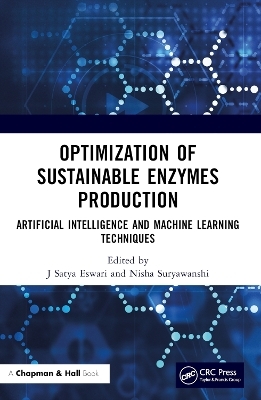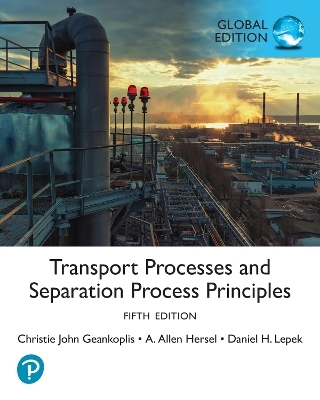
Optimization of Sustainable Enzymes Production
Chapman & Hall/CRC (Verlag)
978-1-032-27343-3 (ISBN)
This book is designed as a reference book and presents a systematic approach to analyze evolutionary and nature-inspired population-based search algorithms. Beginning with an introduction to optimization methods and algorithms and various enzymes, the book then moves on to provide a unified framework of process optimization for enzymes with various algorithms. The book presents current research on various applications of machine learning and discusses optimization techniques to solve real-life problems.
The book compiles the different machine learning models for optimization of process parameters for production of industrially important enzymes. The production and optimization of various enzymes produced by different microorganisms are elaborated in the book
It discusses the optimization methods that help minimize the error in developing patterns and classifications, which further helps improve prediction and decision-making
Covers the best-performing methods and approaches for optimization sustainable enzymes production with AI integration in a real-time environment
Featuring valuable insights, the book helps readers explore new avenues leading towards multidisciplinary research discussions
The book is aimed primarily at advanced undergraduates and graduates studying machine learning, data science and industrial biotechnology. Researchers and professionals will also find this book useful.
Dr. J. Satya Eswari has been an assistant professor for more than 8 years at the Biotechnology Department of the National Institute of Technology (NIT), Raipur, India. She did her M.Tech in Biotechnology at the Indian Institute of Technology (IIT) Kharagpur and a Ph.D. at the IIT, Hyderabad, India. During her research career, she worked as a Scientist (Woman Scientist – Department of Science and Technology (DST)) in the Indian Institute of Chemical Technology (IICT), Hyderabad. She has published more than 60 SCI/Scopus research papers, 6 books, a few book chapters, and 40 international conference proceedings. Her research contributions have received wide global citations. She completed one DST woman scientist project (22 lakhs) and is currently handling one DST-Early career research project (43 lakhs) and one CCOST (4 lakhs). She has more than 7 years of teaching experience and 3 years of research experience. Dr. Eswari has been a guest editor for the Indian Journal of Biochemistry and Biophysics (SCI) and the Journal of Chemical Technology and Biotechnology. She has rigorously pursued her research in the areas of Environmental bioremediation, wastewater treatment, bioprocess, and product development and bioinformatics. She gained pioneering expertise in the application of mathematical and engineering tools to Biotechnological processes. She has received the IEI Young Engineer award, the Outstanding Woman by Venus International award, and the DK Best Faculty award. Dr. Eswari has already guided three Ph.D. students and is currently guiding three other Ph.D. students. Dr. Nisha Suryawanshi is currently working as a guest faculty in the Department of Zoology at Government Arts and Commerce College, Sagar, Madhya Pradesh, India. She completed her Bachelor of Science (B.Sc.) in Biotechnology (Honours) from Guru Ghasidas Central University Bilaspur (Chhattisgarh, India), her Masters of Science (M.Sc.) in Biotechnology from Dr. Hari Singh Gour Central University, Sagar (Madhya Pradesh). She received a Doctor of Philosophy from the Department of Biotechnology, National Institute of Technology, Raipur (Chhattisgarh, India). She has ten publications in her research area in peer-reviewed SCI journals. During her Ph.D., she worked in the area of bioprocess and product development. She also has qualified national-level examinations CSIR-NET-JRF (Life science), GATE (Biotechnology), ICAR-NET (Agriculture Biotechnology), and the state-level examination MPSET.
1. Industrially Important Enzymes. 2. Applications of Industrially important enzymes. 3. Optimization of Fermentation Process: Influence on Industrial Production of Enzymes. 4. Reforming process optimization of enzyme production using artificial intelligence and machine learning. 5. Scale-up models for chitinase production, enzyme kinetics, and optimization. 6. Genetic Algorithm for optimization of fermentation process of various enzyme production. 7. Optimization of process parameter of various classes of enzymes using artificial neural network. 8. Advanced Evolutionary Differential Evolution and Central Composite Design: Comparative Study for process optimization of chitinase production. 9. Artificial bee colony for optimization of process parameters for various enzyme productions.
| Erscheinungsdatum | 08.11.2022 |
|---|---|
| Zusatzinfo | 32 Tables, black and white; 27 Line drawings, black and white; 7 Halftones, black and white; 34 Illustrations, black and white |
| Sprache | englisch |
| Maße | 156 x 234 mm |
| Gewicht | 426 g |
| Themenwelt | Technik ► Umwelttechnik / Biotechnologie |
| ISBN-10 | 1-032-27343-7 / 1032273437 |
| ISBN-13 | 978-1-032-27343-3 / 9781032273433 |
| Zustand | Neuware |
| Informationen gemäß Produktsicherheitsverordnung (GPSR) | |
| Haben Sie eine Frage zum Produkt? |
aus dem Bereich


